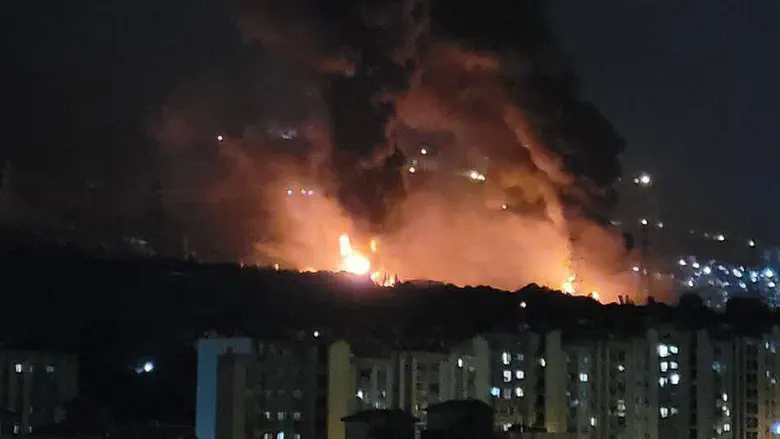Iran has launched a rapid clean-up operation at a nuclear-linked site in northern Tehran that was targeted by Israeli airstrikes, in what experts say is a likely attempt to eliminate evidence of nuclear weapons development, Reuters reported Wednesday.
The Institute for Science and International Security, a Washington-based research group headed by former UN nuclear inspector David Albright, released satellite imagery showing “a significant effort by Iran to rapidly demolish damaged or destroyed buildings, likely to sanitize any incriminating nuclear weapons research and development activities.”
The site in question, known as Mojdeh or Lavisan II, sits adjacent to Malek Ashtar University and was bombed twice by Israeli forces on June 18 during a broader military operation that struck hundreds of targets across Iran. The first strike hit several buildings, including one tied to the Institute of Applied Physics and another suspected to be linked to the Shahid Karimi Group, which has been sanctioned by the United States for its involvement in missile and explosives-related projects.
The second Israeli strike destroyed the Applied Physics building, damaged a security facility, and leveled a workshop. Satellite images from Maxar Technologies dated June 20 confirmed the destruction. Follow-up imagery from July 3 showed the start of debris removal, and by August 19, the site had been completely cleared, including the suspected Shahid Karimi building.
“The rapid work by Iran to quickly demolish and clear the rubble of these important buildings appears to be an effort to sanitize the site and limit the availability of any possible future inspection from obtaining” evidence of nuclear weapons-related work, the institute stated.
Iran’s mission to the United Nations did not respond to requests for comment.
The revelations come as the International Atomic Energy Agency (IAEA) holds talks in Tehran aimed at resuming inspections that were disrupted by the June 13-24 war between Israel and Iran, and the June 22 US strikes on Iran’s three primary nuclear facilities – Fordow, Natanz, and Isfahan.
Meanwhile, Britain, France, and Germany are expected to initiate the process of re-imposing United Nations sanctions on Iran as early as Thursday, citing violations of the 2015 nuclear agreement intended to prevent Iran from acquiring nuclear weapons capabilities.
